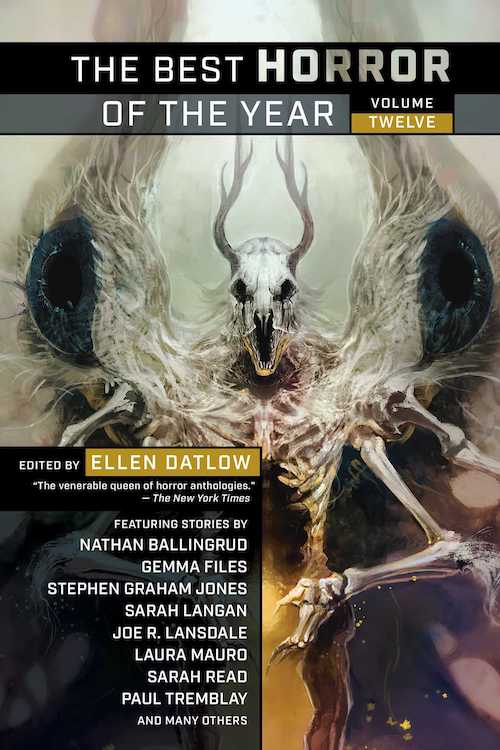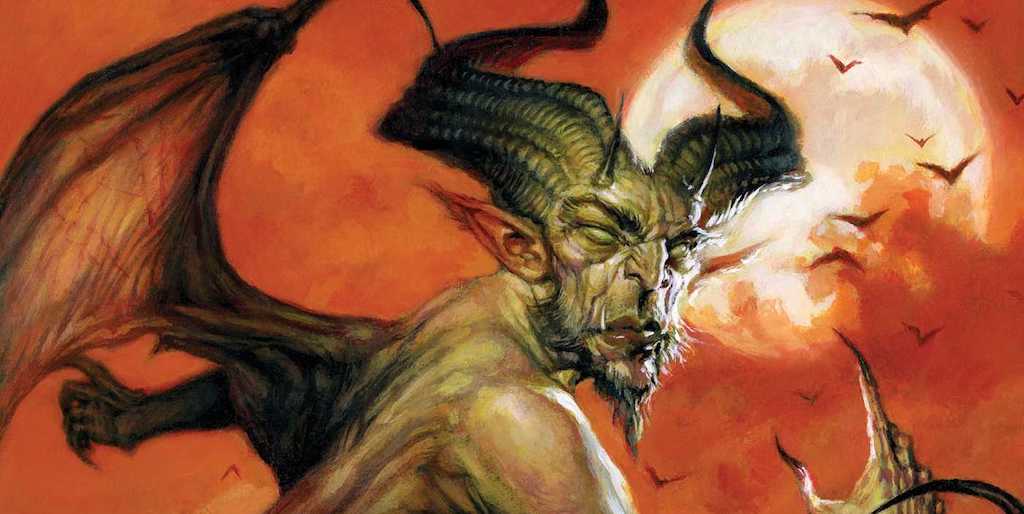Interviewing Ellen Datlow, the Doyenne of Short Horror Fiction
Ellen Datlow is probably one of the most well-known names in horror short fiction, and for good reason. She’s been editing horror for more than 35 years. She’s won countless awards, including ten World Fantasy Awards, nine Hugo awards, as well as multiple Locus Awards, Bram Stokers, Shirley Jackson awards, and more. If you’ve read any short horror stories in the last few decades, you’ve almost surely read something she’s edited.
I had the honor of interviewing Datlow after reviewing her The Best Horror of the Year Volume 12 anthology, to learn what makes her tick, and where she sees the future of horror taking us.
Tonia Ransom: How did the Best Horror volumes come to be?
Ellen Datlow: Well, I co-edited the Year’s Best Fantasy and Horror with Terri Windling, then Kelly Link and Gavin Grant handling fantasy for 21 volumes. Once we decided to discontinue that series with our publisher, Kelly and Gavin decided they didn’t want to do it any more at all. I was all for doing a Best Horror of the Year series and pitched the idea to Night Shade’s Jeremy Lassen and he took the book. Jeremy was my in-house editor for the first five volumes and Jason Katzman took over with Volume Six.
TR: What trends do you see emerging in horror?
ED: There’s more and more of an international presence in the field. I’ve been seeing really interesting horror fiction by Pakistani, Malaysian, and Brazilian authors..
TR: What is your favorite subgenre of horror?
ED: I don’t think I have a favorite, although I have least favorites 🙂
TR: Aside from money, what kind of rewards do you get from editing other people’s work?
ED: I love working with writers and pushing them to create their best work. I love being the first person to see a brilliant story (or, if not, at least the first professional).
TR: What is a dream project that you haven’t yet had an opportunity to work on?

ED: I’ve been lucky to work on most everything I’ve wanted to. Even if it takes years, I usually end up selling an anthology idea eventually. I am always eager to edit more non-themed anthologies.
TR: What advice would you give aspiring editors?
ED: The key to good editing is asking questions and not imposing your own bias/style (if you’re also a writer) on someone else’s story. If you like a story and think you might want to acquire and edit it but believe it needs work, don’t be afraid to make suggestions, and if something isn’t clear, you might ask the writer to tell you what they think is going on––and if their vision is not coming through on the page, tell them that. But always remember: it’s not your story. It’s the writer’s. If you can’t agree on revisions, let it go. Learn to say “no.” Never feel obliged to buy stories by friends or big names if you don’t like the story or don’t think it works for the venue for which you’re editing.
Always remember that the work you’re editing is not yours. Do not rewrite––if you have editing suggestions make it clear to the author (especially newer ones) that you encourage them to revise.
TR: What is your least favorite part of your work?
ED: Sending out royalties (for anthologies)––although when I get into the “zone,” it’s quite satisfying.
TR: How do you think film horror and horror in literature differ, aside from the medium?
ED: For me, not as much as you’d think, because I read visually. If I can’t visualize what is taking place on the page or where the story/novel is taking place, it’s difficult for me to become immersed in the story. Depending on how you’re viewing a film (in your apartment or in a movie theater) the experience might be more or less immersive. Of course, with the written word, you can close your eyes, stop reading for a moment and take a deep breath. In a movie theater, you close your eyes or turn away and you might miss something crucial. So in a way, watching a horror film on TV can be more similar to reading it than watching in a large theater. Because with TV, you can pause, go back, fast forward and manipulate the way you watch the movie.
TR: What can we look forward to from you in the next 12 months?
ED: Cassandra Khaw’s spectacularly creepy novella Nothing But Blackened Teeth will be out from Nightfire in 2021. Veronica Schanoes’s debut collection Burning Girls and Other Stories will be out from Tordotcom publishing this March. It’s got some very dark work in it––particularly the title novella and “Among the Thorns,” which both originally appeared on Tor.com. We’ve also got new horror and dark fantasy novelettes and stories for Tor.com by Glen Hirshberg, Tegan Moore, Ian Rogers, and Kathleen Jennings, and a science fiction novelette by Richard Kadrey.
I’ve also got an all-reprint body horror anthology called Body Shocks, coming from Tachyon, and presumably the two new original anthologies I’m working on will be in production, but I can’t talk about them yet. One will likely be mostly dark fantasy and the other is horror.




One thought on “Interviewing Ellen Datlow, the Doyenne of Short Horror Fiction”